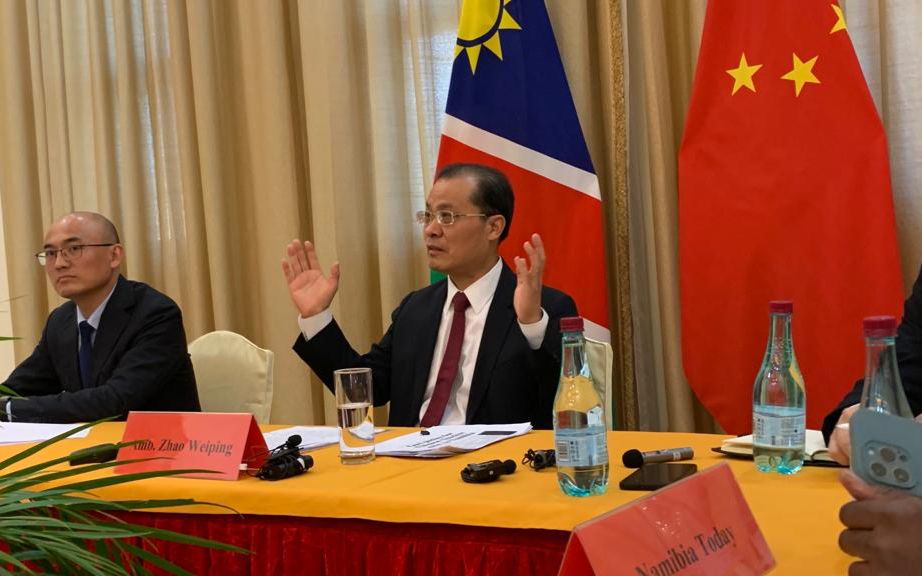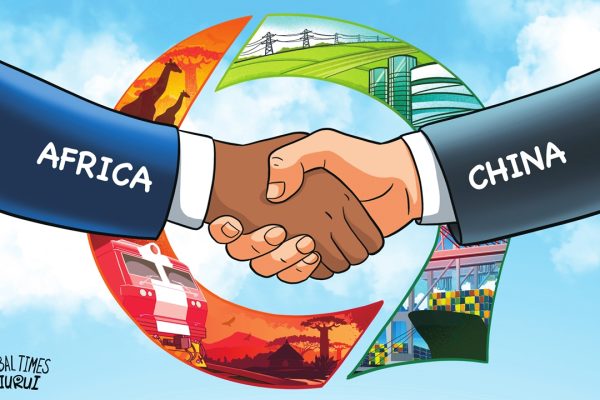
By: Mathias Hangala
The Chinese Ambassador to Namibia, Zhao Weiping, has joined growing calls from African and Latin American nations for reparations for historical injustices suffered under colonial rule.
Speaking to the media in Windhoek on Wednesday, Weiping emphasised that the demand for reparations is not unique to Africa.
“It is not only African countries that have voiced their demands for reparations, but also Latin American countries. This issue has gained more attention, and many countries in Africa and Latin America are united in this call. It is a very tragic part of history for our African friends,” he said.
Weiping expressed doubt that the depth of trauma caused by colonial atrocities could fully be grasped. “No one can imagine the scale of pain inflicted on African people. It is, therefore, legitimate and just for African and other affected countries to seek reparations,” he stated.
Between 1904 and 1908, during German colonial rule in what was then German South West Africa (now Namibia), an estimated 70,000 Herero and Nama people were killed under the command of General Lothar von Trotha’s ‘Extermination Order.’
Survivors were forced into concentration camps such as Shark Island, where many were subjected to torture, forced labour, and death. Some victims’ remains were sent to German universities for research purposes — a dark legacy that continues to haunt Namibia today.
It is for this reason that descendants of the Herero and Nama have long demanded reparations for these heinous acts, pleading their cases to the international community. In 2021, Germany officially recognised the events as genocide and issued a formal apology. However, its offer of about N$21.9 trillion in development aid over 30 years was rejected by affected communities, who deemed it “insufficient and insulting.” The proposed funds were framed as developmental assistance to the Namibian government, rather than direct reparations to the victims’ descendants.
Weiping also highlighted China’s continued commitment to global development and gender equality. He noted that China’s GDP is projected to exceed US$30 trillion, creating new opportunities for cooperation worldwide.
He announced that China will donate an additional US$10 million to UN Women – a United Nations organisation centred around women empowerment – and allocate US$100 million through the Global Development and South-South Cooperation Fund (GDSSCF) to support women and girls. The initiative aims to launch 1,000 “small and beautiful” livelihood projects prioritising women beneficiaries.
The GDSSCF is a fund established by China in 2025 to support developing countries and promote the UN’s Sustainable Development Goals (SDGs) through South-South cooperation. It encompasses initiatives such as the China-UN Global South-South Development Facility (CUNGSSDF) and focuses on key areas of sustainable development, including poverty alleviation, healthcare, climate change, and the digital economy. By fostering collaboration and resource sharing among developing nations, the fund aims to drive inclusive growth and sustainable progress.
Analysts have highlighted its success stories, which include the introduction of renewable energy models in countries such as Morocco, the enhancement of maternal healthcare in Kyrgyzstan through telemedicine, and the construction of a dam in Burkina Faso, which provides a reliable water source for approximately 8,700 people.
Furthermore, Weiping stipulated that China is rolling out plans to invite 50,000 women to participate in exchange and training programs, and to establish a Global Centre for Women’s Capacity Building (GCWCB).
“We believe this meeting on women has brought the world together to further consolidate consensus and inject new momentum into the global cause of women,” noted Weiping.
Trade wars, fuelled by tariff impositions on products from numerous countries, including China, have strained global trade relations. As a result, China – as one of the world’s economic powerhouses – has sought alternative markets, with Africa appearing to be a promising option with its favourable trade conditions.









